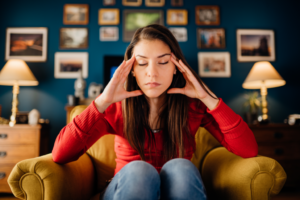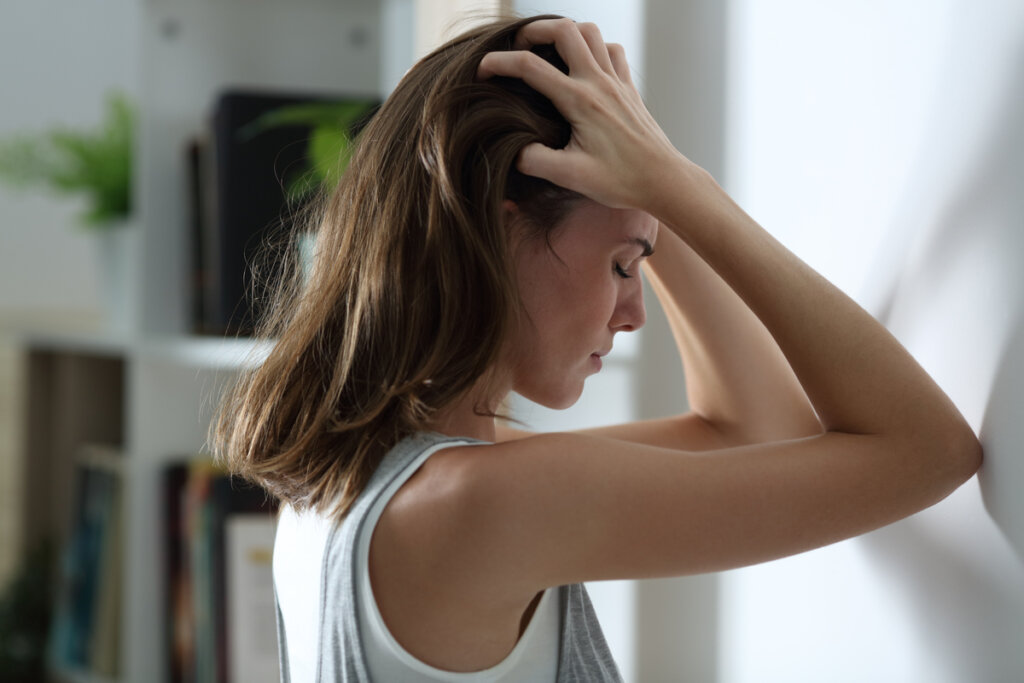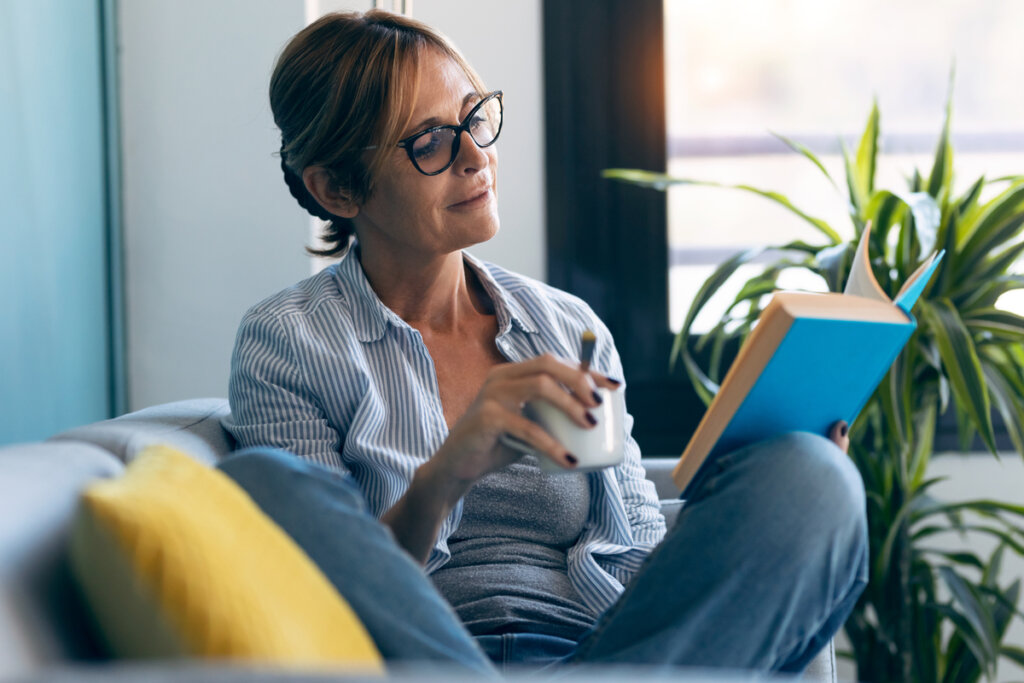Do You Know How to Activate Your Relaxation Mode?


Written and verified by the psychologist Laura Ruiz Mitjana
Pressure, stress, anxiety… you’ve probably experienced one of these if not all of them at some time or another. Perhaps you’ve tried everything to relax yet nothing seems to work. Maybe your mistake is that you’re thinking too much about relaxing and working to actually achieve it. Below, we’ll reveal why.
If you search for the word ‘relax’ on Google, you’ll find 23,400,000 results. This is proof of the huge number of people who find it difficult to relax and who resort to Google to try and find a solution. Indeed, stress affects increasing numbers of people every day.
For example, anxiety is really common. Today, this has a lot to do with everything we experienced in the pandemic. In fact, according to the WHO, the Covid-19 pandemic has caused a 25 percent increase in the prevalence of anxiety and depression. In addition, anxiety disorders already affected 264 million people worldwide. Furthermore, according to statistics, anxiety is the sixth leading cause of reduced years of healthy life.
These figures are quite alarming as we’re not really talking about specific cases of stress and burnout syndrome. In fact, it seems it’s not even necessary to suffer from an anxiety disorder to have a need to relax but find it difficult.

The difficulty in relaxing
As you know, taking care of your body favors your mind and vice versa. Therefore, you probably try to take care of yourself, get adequate rest, and eat well because it’s good for your mental health. This is all good, so where’s the problem? We’ll tell you.
Stress, anxiety, and depression trigger physiological responses in your sympathetic nervous system. This is in charge of your fight or flight response.
Current scientific evidence suggests that when you stress over relaxing, or when you demand that your body exercises too much (through sports), you fail to relax. Thus, a paradoxical effect arises and the more you try to relax, the less you can.
When you stress over relaxing, or when you require your body to exercise too much (through sports), that’s when you fail to do so.
This is why it’s so hard to relax. In addition, problems appear for you in enjoying your free time, because, of course, you’re making an effort and ‘working’ to relax.
What you need is the opposite. You should stop looking for relaxation in order to be able to relax. However, that doesn’t mean that there aren’t some strategies you can use.
Self-demand
Currently, there’s a great self-demand to be well. Not only that but also to get the best out of yourself and to be successful. It can even be seen in children and adolescents. For instance, they’re signed up for a thousand extracurricular activities and are ‘demanded’ not to stop. So how should we encourage relaxation?
Today, the message conveyed is ‘work hard’. Of course, you can do this, but you should also make room for not doing it; to simply live, enjoy, and stop.
We live in a world where it’s not easy to relax
The world in which we live isn’t an ideal setting for relaxing. After all, you face the demands of daily life, work, and study. In this context, it’s the one who works the hardest and who achieves the most success who’s constantly reinforced.
Research has also shown that stress, anxiety, and depression, which appear alongside the pressure to achieve and be successful, interfere (physiologically) with the body’s relaxation mechanisms.
Therefore, focusing on the goal of relaxing means putting more pressure on yourself. What can you do about this? To begin with, you can learn to relax in a different way.
Learning to relax
Diane Barth is a psychotherapist based in New York. She proposes that we start from the desire for a state of relaxation (without putting pressure on ourselves), to learn to master the art of relaxation. She says that we should look for motivation there, but not demand too much of ourselves.
It’s about setting the kinds of goals that are actually achievable in respect of relaxation. This is especially useful for people who are looking to learn or achieve something. Here are some of Diane Barth’s ideas:
1. Approach it as a challenge and a task to be solved
Find your motivation. It isn’t easy to learn to dominate your body and deactivate it, lowering your heartbeat, calming your spirit, and resting your mind. However, you must learn to do it. A good time to practice is when you’re on holiday or have a little free time in your daily routine.
2. Choose one or two strategies
As we’ve demonstrated, the ability to relax lies in your determination to do so. Try posing yourself another challenge. Instead of saying “I’m going to relax,” say “I’m going to meditate”. This will help you to implement some strategies in a structured way in your routine such as:
- Meditation.
- Yoga.
- Conscious breathwork.
3. Practice something else that not only makes you relax
For example: learn to knit, paint, draw, or cook. However, do it in a conscious way, reading and internalizing what you’re learning well.
It’s also about looking for motivation in the kinds of activities that, indirectly, will relax you.
4. Look for something pleasant
The psychotherapist suggests a number of really enjoyable books, television shows, or movies to watch in our spare time. You could also opt for a bike ride.
Keep in mind that pleasure is antagonistic to anxiety, so if you enjoy your activity, you won’t feel overwhelmed.

Find other goals to relax
According to Diane Barth, the key is to consider all these objectives as goals and find the necessary motivation to work on them. As you can see, it’s not about having relaxation as a goal, but many other things that lead us toward it.
This often isn’t easy to achieve, because the more you think about something (like “I need to relax “), the more you feel that you need it. You look for a way to feel good but achieving a state of relaxation is like walking. You don’t think about moving one leg and then the other one. You just walk.
Relaxation isn’t exactly the same, because it involves a certain amount of practice. Once you understand this, you can begin to focus your attention on other things and eventually disconnect.
“Peace comes from within. Do not seek it without.”
-Siddhārtha Gautama-
Pressure, stress, anxiety… you’ve probably experienced one of these if not all of them at some time or another. Perhaps you’ve tried everything to relax yet nothing seems to work. Maybe your mistake is that you’re thinking too much about relaxing and working to actually achieve it. Below, we’ll reveal why.
If you search for the word ‘relax’ on Google, you’ll find 23,400,000 results. This is proof of the huge number of people who find it difficult to relax and who resort to Google to try and find a solution. Indeed, stress affects increasing numbers of people every day.
For example, anxiety is really common. Today, this has a lot to do with everything we experienced in the pandemic. In fact, according to the WHO, the Covid-19 pandemic has caused a 25 percent increase in the prevalence of anxiety and depression. In addition, anxiety disorders already affected 264 million people worldwide. Furthermore, according to statistics, anxiety is the sixth leading cause of reduced years of healthy life.
These figures are quite alarming as we’re not really talking about specific cases of stress and burnout syndrome. In fact, it seems it’s not even necessary to suffer from an anxiety disorder to have a need to relax but find it difficult.

The difficulty in relaxing
As you know, taking care of your body favors your mind and vice versa. Therefore, you probably try to take care of yourself, get adequate rest, and eat well because it’s good for your mental health. This is all good, so where’s the problem? We’ll tell you.
Stress, anxiety, and depression trigger physiological responses in your sympathetic nervous system. This is in charge of your fight or flight response.
Current scientific evidence suggests that when you stress over relaxing, or when you demand that your body exercises too much (through sports), you fail to relax. Thus, a paradoxical effect arises and the more you try to relax, the less you can.
When you stress over relaxing, or when you require your body to exercise too much (through sports), that’s when you fail to do so.
This is why it’s so hard to relax. In addition, problems appear for you in enjoying your free time, because, of course, you’re making an effort and ‘working’ to relax.
What you need is the opposite. You should stop looking for relaxation in order to be able to relax. However, that doesn’t mean that there aren’t some strategies you can use.
Self-demand
Currently, there’s a great self-demand to be well. Not only that but also to get the best out of yourself and to be successful. It can even be seen in children and adolescents. For instance, they’re signed up for a thousand extracurricular activities and are ‘demanded’ not to stop. So how should we encourage relaxation?
Today, the message conveyed is ‘work hard’. Of course, you can do this, but you should also make room for not doing it; to simply live, enjoy, and stop.
We live in a world where it’s not easy to relax
The world in which we live isn’t an ideal setting for relaxing. After all, you face the demands of daily life, work, and study. In this context, it’s the one who works the hardest and who achieves the most success who’s constantly reinforced.
Research has also shown that stress, anxiety, and depression, which appear alongside the pressure to achieve and be successful, interfere (physiologically) with the body’s relaxation mechanisms.
Therefore, focusing on the goal of relaxing means putting more pressure on yourself. What can you do about this? To begin with, you can learn to relax in a different way.
Learning to relax
Diane Barth is a psychotherapist based in New York. She proposes that we start from the desire for a state of relaxation (without putting pressure on ourselves), to learn to master the art of relaxation. She says that we should look for motivation there, but not demand too much of ourselves.
It’s about setting the kinds of goals that are actually achievable in respect of relaxation. This is especially useful for people who are looking to learn or achieve something. Here are some of Diane Barth’s ideas:
1. Approach it as a challenge and a task to be solved
Find your motivation. It isn’t easy to learn to dominate your body and deactivate it, lowering your heartbeat, calming your spirit, and resting your mind. However, you must learn to do it. A good time to practice is when you’re on holiday or have a little free time in your daily routine.
2. Choose one or two strategies
As we’ve demonstrated, the ability to relax lies in your determination to do so. Try posing yourself another challenge. Instead of saying “I’m going to relax,” say “I’m going to meditate”. This will help you to implement some strategies in a structured way in your routine such as:
- Meditation.
- Yoga.
- Conscious breathwork.
3. Practice something else that not only makes you relax
For example: learn to knit, paint, draw, or cook. However, do it in a conscious way, reading and internalizing what you’re learning well.
It’s also about looking for motivation in the kinds of activities that, indirectly, will relax you.
4. Look for something pleasant
The psychotherapist suggests a number of really enjoyable books, television shows, or movies to watch in our spare time. You could also opt for a bike ride.
Keep in mind that pleasure is antagonistic to anxiety, so if you enjoy your activity, you won’t feel overwhelmed.

Find other goals to relax
According to Diane Barth, the key is to consider all these objectives as goals and find the necessary motivation to work on them. As you can see, it’s not about having relaxation as a goal, but many other things that lead us toward it.
This often isn’t easy to achieve, because the more you think about something (like “I need to relax “), the more you feel that you need it. You look for a way to feel good but achieving a state of relaxation is like walking. You don’t think about moving one leg and then the other one. You just walk.
Relaxation isn’t exactly the same, because it involves a certain amount of practice. Once you understand this, you can begin to focus your attention on other things and eventually disconnect.
“Peace comes from within. Do not seek it without.”
-Siddhārtha Gautama-
All cited sources were thoroughly reviewed by our team to ensure their quality, reliability, currency, and validity. The bibliography of this article was considered reliable and of academic or scientific accuracy.
- Belloch, A., Sandín, B. y Ramos, F. (2010). Manual de Psicopatología. Volumen I y II. Madrid: McGraw-Hill.
- World Health Organization. (2017). Depression and Other Common Mental Disorders. Global Health Estimates.
This text is provided for informational purposes only and does not replace consultation with a professional. If in doubt, consult your specialist.







